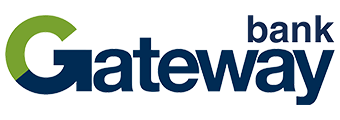
- Many banks will reduce your total interest rate paid if you opt to withdraw early. Some banks are more harsh than others, and some might even charge an additional fee. These are called prepayment adjustments.
- Some only allow full withdrawal, while others might allow a partial one.
- Even despite this request, many accounts require at least 31 days' notice until you see your funds cleared in your account.
- Fees/adjustments are waived if the account holder is deceased or in financial hardship.
- It's advised you reconsider a term deposit if you think you will need access to those funds within the term.
Early withdrawals on term deposits can lead to penalty fees or interest rate reductions and so you need to know what these penalties are before you open the term deposit. These are otherwise known as prepayment adjustments.
Many banks will not pay interest on a term deposit that is 'broken' early, or they will pay out less interest. Some banks will ask for 31-days' notice if you want to withdraw funds from your term deposit - so even if you break out of one early you'll still likely be waiting this long to see your money.
If you have fewer than 31 days left on the term, you might not be able to access the funds until maturity. Some banks do allow immediate access, so check before signing on.
If you want to know the fees and penalty charges for closing a term deposit early and you are a customer with the Commonwealth Bank, Westpac, NAB or ANZ, find out more below.
| Bank | Term Deposit | Interest Rate | Interest Frequency | Term | Automatic Rollover | Maturity Alert | Early Withdrawal Available | Minimum Deposit | Maximum Deposit | Notice Period to Withdraw | Account Keeping Fee | Online Application | Joint Application | Tags | Features | Link | Compare | Promoted Product | Disclosure |
|---|---|---|---|---|---|---|---|---|---|---|---|---|---|---|---|---|---|---|---|
4.50% p.a. | At Maturity | 6 months | $5,000 | $10,000,000 | – | – | Disclosure | ||||||||||||
4.05% p.a. | At Maturity | 6 months | $5,000 | $10,000,000 | – | – | |||||||||||||
4.45% p.a. | At Maturity | 6 months | $1,000 | $1,000,000 | – | – | |||||||||||||
4.40% p.a. | At Maturity | 6 months | $25,000 | $10,000,000 | – | – | |||||||||||||
4.25% p.a. | At Maturity | 6 months | $5,000 | $500,000 | – | – | |||||||||||||
4.40% p.a. | At Maturity | 6 months | $1,000 | $1,000,000 | – | – | |||||||||||||
4.65% p.a. | Annually | 12 months | $5,000 | $10,000,000 | – | – | Promoted | Disclosure |
Interest rate reductions for withdrawing from a term deposit
Each bank has its own schedule of penalty fees and rate reductions, as well as different names, such as prepayment penalties or early withdrawal fees. Some banks reduce your interest rate on a sliding scale according to how much of the term is left. The nearer to maturity the account is, the smaller the reduction.
The sliding scale typically works like this:
| Percentage of term lapsed | Interest rate reduction |
|---|---|
| 0% to 20% | 90% |
| 20% to 40% | 80% |
| 40% to 60% | 60% |
| 60% to 80% | 40% |
| 80% to 100% | 20% |
For example, if you had a 12 month term deposit and you exited six months in, you'd sacrifice 60% of your interest. If your interest rate was 5.00% p.a. and you invested $50,000, you'd yield $2,500 by seeing out the term; leaving halfway through means you'd yield only $1,000.
Many banks use a sliding interest rate scale, called a prepayment adjustment, however the exact terms and reductions might differ between institutions.
Some banks might add a break fee onto your sacrifice in interest, which is typically $30. Less common is that some other banks impose a break fee which is worked out by looking at the bank's current rates, the account rate, how much money you want to withdraw and how close to maturity the account is.
If the interest rate reduction and break costs outweigh the interest payable - or paid - into the account, it will likely come out of your principal balance.
Why can't I withdraw from a term deposit?
When you open a term deposit, you're signing an agreement with the bank to use your money for its own investments and lending for a set period of time. If you make an early withdrawal, you are breaking this agreement and the bank isn't getting the full value out of your money. Many banks only allow full withdrawal, not partial withdrawal.
The 31 day notice period that many banks require was introduced back in 2015 to help with the liquidity coverage ratio (LCR) under the Basel III reforms. These reforms aim to reduce the financial stresses upon banks by making sure they have enough funds to get through 30 days of any financial upheaval or crisis that may occur.
When it's worth withdrawing from a term deposit
Generally speaking if you're considering a term deposit, you want to make sure you can afford to lock the funds away for the entire period. If your bank allows for it, there are a few select scenarios where withdrawing early could be worth it.
You are in financial hardship
Deceased persons' term deposit accounts can typically be withdrawn early without penalty.
In addition, people in financial hardship may be able to access their term deposit without penalty. Find out more about claiming financial hardship from your bank or call the National Debt Helpline on 1800 007 007.
If it's the difference between making rent or affording food, and some term deposit interest, then prioritise the living essentials and reconsider your need for a term deposit in the future.
Interest rates have gone up
If interest rates are rising on other products, and you've locked in, it could be worth withdrawing from the term deposit despite the reductions in interest and any fees payable.
Few people and organisations - including the RBA - could have predicted the rapid rise in interest rates from mid-2022 to late-2023 in order to get inflation down.
For example, in July 2022 the average 3-year term deposit rate - per RBA data - was just 1.45% p.a.
If you locked in this rate, yet six months later you see a savings account offering 3.35% p.a. (the average in January 2023), you could get a better return.
Ordinarily you'd have earned $725 per year on a $50,000 deposit. Using the sliding scale above, and a $30 penalty, you'd get $187.50 net in interest.
You'd then move your balance to a 3.35% p.a. savings account, which would yield just over $1,701 in interest in the first year alone. With a savings account you can also add more funds and earn more due to compound interest.
Commonwealth Bank term deposit early withdrawal penalties
To make an early withdrawal from a Commonwealth Bank term deposit you will pay a $30 administration fee. There will also be a prepayment adjustment, and 31-days' notice is required, but part withdrawal can be made.
| Percentage of term lapsed | Interest rate reduction |
|---|---|
| 0% to 20% | 90% |
| 20% to 40% | 80% |
| 40% to 60% | 60% |
| 60% to 80% | 40% |
| 80% to 100% | 20% |
Westpac Bank term deposit early withdrawal penalties
Westpac also wants 31-days' notice before withdrawals and applies interest rate adjustments to a similar schedule as Commonwealth Bank.
| Percentage of term lapsed | Interest rate reduction |
|---|---|
| 0% to 20% | 90% |
| 20% to 40% | 80% |
| 40% to 60% | 60% |
| 60% to 80% | 40% |
| 80% to 100% | 20% |
If you withdraw funds during the first week (seven days) after opening the term deposit, Westpac may pay you no interest at all.
ANZ Bank term deposit early withdrawal penalties
ANZ uses a similar interest rate adjustment scale as Commonwealth Bank and Westpac. ANZ's 'Advance Notice' term deposits require 31-days' notice to withdraw funds. Some ANZ term deposits will not ask for notice but the interest rates on these products are significantly lower.
| Percentage of term lapsed | Interest rate reduction |
|---|---|
| 0% to 20% | 90% |
| 20% to 40% | 80% |
| 40% to 60% | 60% |
| 60% to 80% | 40% |
| 80% to 100% | 20% |
NAB term deposit early withdrawal penalties
NAB may reduce the interest returned to you from the term deposit by NAB's reasonable estimate of the cost of meeting the prepayment.
| Percentage of term lapsed | Interest rate reduction |
|---|---|
| 0% to 20% | 80% |
| 20% to 40% | 60% |
| 40% to 60% | 40% |
| 60% to 80% | 20% |
| 80% to 100% | 10% |
Any reduction in the interest generated on the term deposit will never exceed the accrued interest, so you won't pay a net amount for breaking a NAB term deposit.
NAB's rate reduction scale is similar to the other banks, but on the balance, the percentage reductions appear slightly less harsh, however these should be used as a guide only.
Other banks' term deposit early withdrawal penalties
| Bank | Interest Rate Sacrifice | Additional Penalty |
| Macquarie Bank | 25% of interest accrued over time served | - |
| ING Bank | Sliding scale for time served | - |
| Bendigo & Adelaide Bank | Lowest rate offered on a 3-month product minus 25bps | - |
| Suncorp Bank | Sliding scale for time served | - |
| Bank of Queensland | 50% of interest accrued over time served | $30 |
| HSBC | 50% of interest accrued over time served | $30 |
| People First Bank | Interest for time served minus 5-15bps | - |
| Great Southern Bank | Sliding scale for time served | - |
| AMP Bank | Sliding scale for time served | - |
| Judo Bank | Sliding scale for time served | - |
Information correct as of February 2024.
It's worth checking your product's individual product disclosure statement, accessed via your bank's website. Banks may offer different term deposit product lines with differing withdrawal conditions.
If you're picking a bank based on its early withdrawal conditions, you might want to reconsider a term deposit product altogether. If you suspect you might need funds 'at call', consider a savings account.
Photo by Sasun Bughdaryan on Unsplash
First published in February 2020





